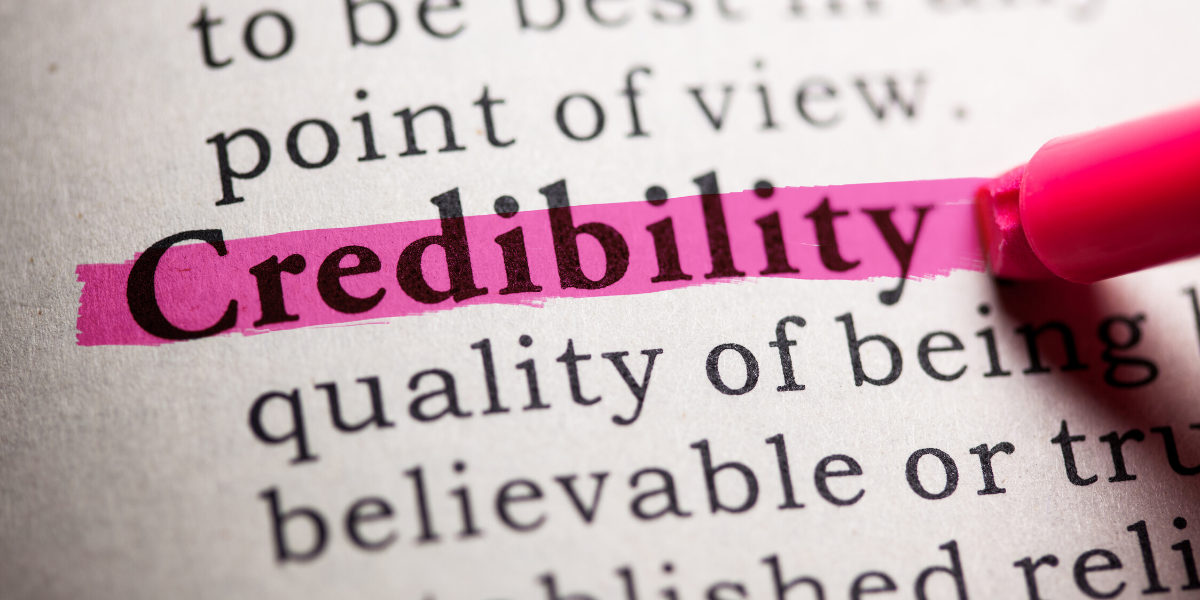On any given day, donors are presented with a seemingly unending list of options. With Canada having over 170,000 charitable and nonprofit organizations, there are many worthy and urgent causes that Canadians may want to give to.
Most of us working in the charitable sector can probably agree that working to build deep relationships with donors leads to donor retention. Procedures like writing thank you letters are important since they demonstrate our appreciation for the generosity of our donors. Thank you letters can also set the stage for ongoing strategic communication, but letters and emails alone won’t build credibility.
We want donors to trust in our organizations. When our donors believe in us, they will certainly consider giving their hard earned money to support our cause over and over. While there are many activities we can engage in that will help to inspire our donors to believe in us, time is a valuable resource so organizations must be strategic in choosing where to put their energy. Here are my top suggestions on what activities to focus on to build credibility with donors.
Keep your promise
When soliciting gifts, especially with major donors, it’s important to ensure that your organization can deliver on what you have promised your donor. For example, let’s say an organization has requested $10,000 from a donor to expand its after school youth program. How would the donor feel if that organization ended up using $3,000 of that gift to support a different program? That would certainly destroy credibility. It is true that sometimes plans change, and although we do our best when creating budgets, it’s possible that expenses end up being different than planned. In these cases, follow up with the donor and ask if money can be used differently than originally intended. This is important both ethically, and in working to build trust with your donor.
Don’t overpromise
Many organizations may offer donors some type of recognition when soliciting gifts. It can be very satisfying for donors to be recognized publicly for their investment, and it can also demonstrate that your organization considers them an important part of what you do. So, simply put, don’t overpromise what you can do. Don’t offer to rename a building when it hasn’t been discussed with your board of directors. Although we may be eager to close the deal on a large ask, being realistic and honest with your donors is essential so you can create and maintain trust.
Respect requests to remain anonymous
While many donors enjoy public recognition of their support of your organization, others do not. Some donors with a large giving capacity may choose to keep their gift anonymous to avoid being solicited by multiple organizations. A good practice for charitable organizations is to ask donors at the time of their gift whether or not they would like to remain anonymous. If they request not to be named, then you must ensure their request is honoured.
Manage your donor’s preferences
In the social media age, it can seem like consumers are often bombarded with information. Even for those who avoid social media, our email inboxes can be overflowing with newsletters, and advertisements seem to follow us wherever we go. Despite this constant influx of information, some donors still want to hear from you often. They may be happy to receive your social media updates, subscribe to your newsletters, and come to events often. Others may request not to receive these updates so frequently. So, it is important that your organization have some way to manage the preferences of each donor. There are many systems to automate how we communicate with our donors, but these systems only work when organizations maintain good data about donor preferences. For example, if a donor unsubscribes from an e-newsletter, update this preference in your donor database. This will help ensure that even if the system you use to send email changes, their preference is recorded.
Have trustworthy people
Our best efforts to build stronger relationships with our donors can either be strengthened, or weakened substantially by staff and volunteers. The people in our organizations are the face of it. And whether fortunate or unfortunate, their credibility will impact the overall integrity of your organization. As such, it is important for organizations to have systems in place to screen not only staff, but incoming volunteers. A nonprofit organization that advocates for the cleanliness of local lakes may not want to recruit a board member that worked for a company that had a very public oil spill. In addition, staff and volunteers in nonprofits are often privy to sensitive information, not only regarding donors, but about the people and communities the organization serves. Organizations must be keenly aware of who they are allowing access to that information.
Inspiring your donors to trust in your organization can certainly take time and effort. That being said, by establishing systems that build credibility, your organization will demonstrate both to donors and the community at large that you have a strong ethical commitment to those who invest in your organization. These activities can only enhance your donor retention strategy, and lead to the ultimate goal of building strong and long-lasting investments that will support the great work you do in the community.
With over a decade of experience as both staff and board member in the nonprofit sector, Roxanne understands the challenges small nonprofits face when trying to raise funds. Currently, as Co-founder and Director of Creative Writing & Strategy at Story Point Consulting, Roxanne continues to use her skills to help nonprofits share their stories with the community at large. You can reach her at info@storypoint.ca.







